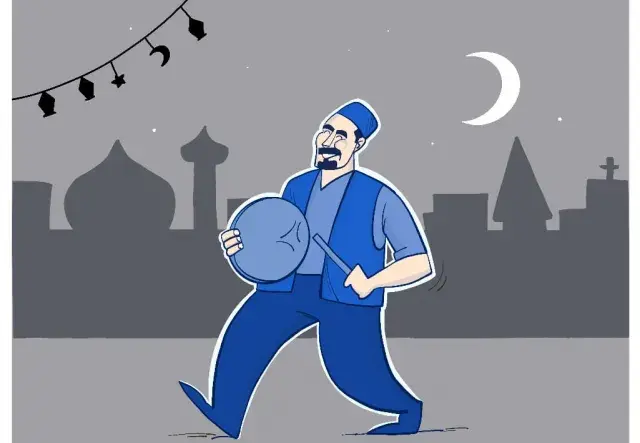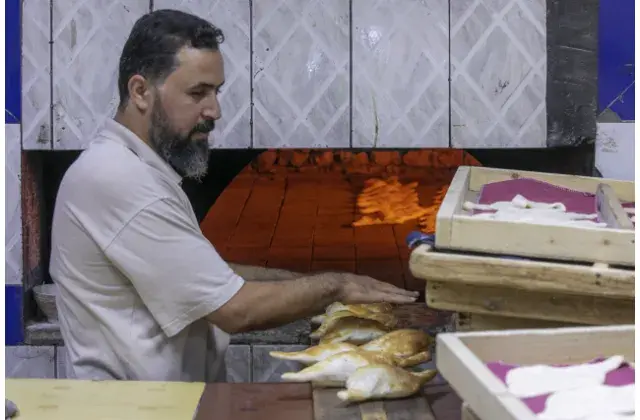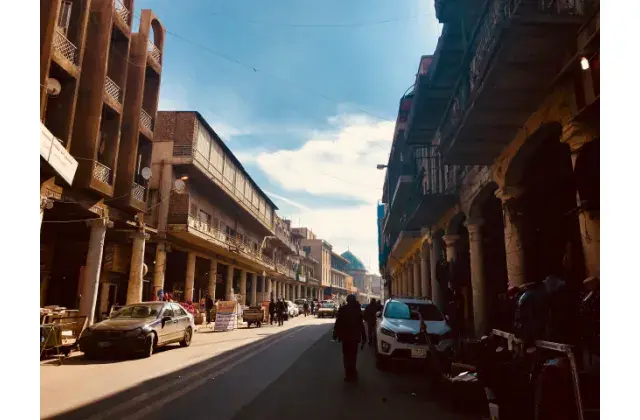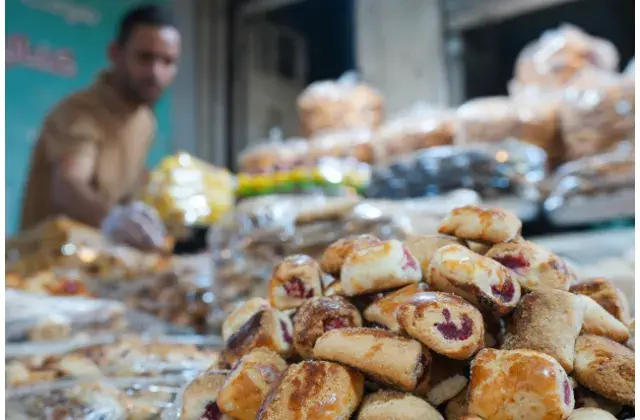Public Festivals and Celebrations in Mosul

History
Most public festivals and celebrations in Mosul were historically associated with a particular religious group. Muslim, Christian, and Jewish residents of Mosul all had distinct religious holidays that were celebrated through urban practices that utilised various spaces in Old Mosul. Today, Mosul is overwhelmingly inhabited by Muslims and therefore public festivals and celebrations are largely related to Islamic practices. However, religious spaces that supported Christian and Jewish religious practices are still found in the built environment.
Public festivals rely on distinct spaces in the city and its surroundings. Preparations for these occasions can begin weeks in advance and include purchasing special supplies. Food is an important component of these festivals. Islamic celebrations correspond to the Islamic calendar and therefore change climatic seasons over time. This contrasts with other festivals and celebrations that correspond to changes in weather or familial rituals.
RAMADAN
Like in many cities with Muslim residents, Ramadan is a distinct period in Mosul and results in a change of daily life for the month. Due to the practice of daytime fasting, the streets of the city are quieter during the day and instead are enlivened in the evening when people go out to spend time with each other in homes or cafes. Special prayers and religious activities are also performed during Ramadan and therefore the mosque is an even more important space. The breaking of the fast, iftar, is also associated with special food and is often done in the company of extended family and friends.
A few weeks before Ramadan, Mosul residents will begin purchasing special sweets such as zalabia, al-awama, shakerlama, and baklawa and various drinks for breaking the daily fast, such as tamarind juice, raisin juice, and ayran . Markets become crowded during this period, reflecting the anticipation and preparations for the month. The siting of the moon, which marks the start of Ramadan, is another distinct activity and was traditionally signalled through the firing of three artillery shots. Today, this tradition has been overshadowed by announcements of Ramadan occurring over television.
During Ramadan, iftar is a distinct time where residents gather to break their fast in the company of family and friends. Public iftars in the city are also common in Mosul. Like the siting of the moon, iftar was historically marked through artillery shots, but today is generally calculated using modern astronomy methods. The second important meal in Ramadan is suhoor, which is a meal eaten directly before fasting begins at sunrise. In the past, residents called msaherchia, were responsible for waking up residents to eat suhoor. Following this meal, male residents generally go to their local mosque to observe fajr, the first daily prayer. Mosques also play an important role in the evening after iftar when a daily tarweeh prayer is performed.
EID ADHA AND FITR
Two of the major Muslim holidays in Mosul are Eid Al-Fitr and Eid Al-Adha, lasting three and four days respectively. Eid Al-Fitr marks end of Ramadan, whereas Eid Al-Adha commemorates Ibrahim’s willingness to sacrifice his son Ismail and is when many Muslims visit Mecca for pilgrimage.
Both holidays involve several days of preparation that include purchasing new clothes and special foods, like sweets and nuts. In each case, the first day of Eid begins with a special morning prayer, takberaat al-eid, at the mosque, which provides an opportunity for worshippers to greet each other and express their well wishes for the holiday. The first day of Eid is also a time when people visit cemeteries and pray for deceased relatives and loved ones. Eid is also a time where families visit each other at home. Children are often the centre of Eid activities; they receive new clothes, visit play areas, and receive pocket money from their parents and relatives, called edaniat. Eid Al-Adha is distinctive from Eid Al-Fitr through the activity of udhiyah, or animal sacrifice. In Mosul, the animal could be sheep, cows, or camels. Meat from the sacrificed animal is distributed to the poor of the city.
AL-MAWLED AL-NABAWI
Al-Mawled Al-Nabawi is the celebration of the birth of the Prophet Muhammad by the Muslim community in Mosul. It is on the 12th of Rabi' Al-Awwal, the third month in the Islamic calendar. The celebration activities of this day include decorating neighbourhoods and markets, serving sweets in the streets and alleys, singing songs that glorify the virtues of the Prophet Muhammad, giving religious talks in mosques, and giving charity to underprivileged social groups in the city.
CHRISTMAS AND EASTER
Christian festivals contribute to the overall picture of Mosul's Intangible heritage. There are seven religious festivals that are performed by Christians in Mosul, which include Eid Ghas Al-Sani (Christmas), Eid Ba'aotha, Eid Al-Deneh, Al-Sawm Al-Kabeer (The long fasting), Eid Al-Sa'aaneen, Eid Al-Feseh (Easter), and Eid Saloqa. Each of these Eids is associated with a religious memory or obligation. Apart from some special activities associated with each Eid, all of these festivals include visiting churches, wearing celebration costumes and exchanging congratulations.
Link: https://mosul-heritage.com/intangible-festivals
This article was written by "Mosul Heritage" NGO and is licensed under CC BY-NC 4.0.






